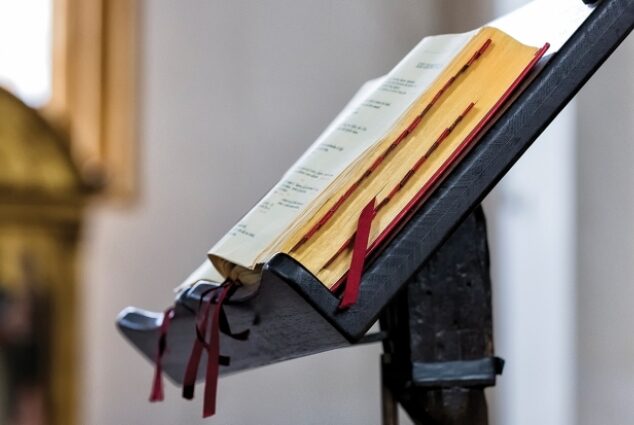It’s very interesting to me how many times this week the Liturgy of the Hours has become a focal point of conversation. The power and beauty of praying the Psalms, which St. Ambrose once called the gymnasium of the soul, tends to bring out the best and the worst of us. The older I get, the more I realize the truth of that statement. The beautiful poetry and prose of the Psalms speak to the human condition, from the good to the bad, the happy and the sad.
The frank words offering God joyful gratitude or deep despair and quiet hope or vengeful rage seem like a treasure in our Judeo-Christian tradition. There is ample room in these scriptures for the whole messy range of human experience. They are big enough for all the human emotion in our inner worlds and outer world—all the various voices within us and in our world.
If we are truthful, there are parts of us that feel these raw, uncomfortable sentiments, parts that our more respectable adult parts often want to hide or ignore. The strong, candid—sometimes even offensive!—language of the divine office grants permission for those less-polished parts to be offered to God.
The most interesting thought to me is that it is in the Liturgy of the Hours, the Public Prayer of the Church, that we attempt to restructure time itself (at least how we experience it on a human level) to be more as it was originally intended. That is, we take this fallen world we live in, the one broken by our sin, and we attempt to reorient even our own personal time to put God as the focus. In a world, and often a theology, where mankind tends to meditate on things in an anthropocentric manner (man being the center of all things), the liturgy of the hours instead reminds us that we should always have a Christopocentric mindset (Christ being the center of all things).
Last year, during a visit to the Trappist Gethsemani Abbey, where recitation of the divine office is an anchor of monastic life, these words from an abbot’s chapter talk touched me deeply: “The Liturgy of the Hours . . . is an ongoing restructuring of our mind and hearts.” I do sense that daily practice of the divine office is working on me, sometimes consciously, but more often what I sense is on a subterranean level. I don’t know how this works, but on good days I sense that it does, and on bad days I trust that it does, even if I can’t feel it.
What do you think? Have you ever taken time to pray the Liturgy of the Hours? Check out more of the article I have quoted above by Sister Rhonda Miska, a Sinsinawa Dominican novice who writes from River Forest, Illinois, where she ministers at Dominican University.
Let the Liturgy of the Hours restructure your mind and heart.

